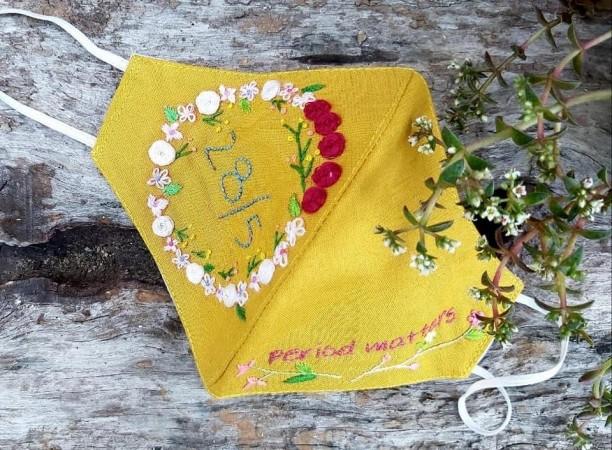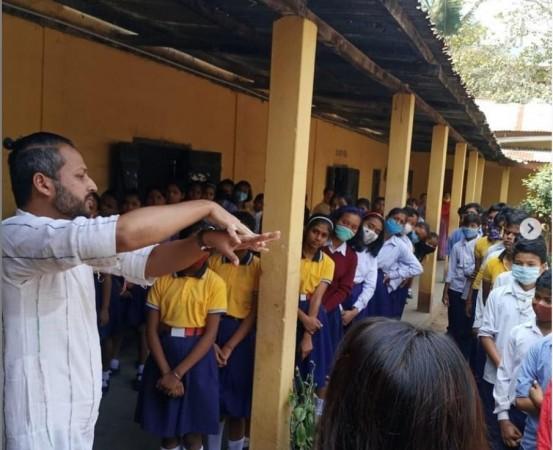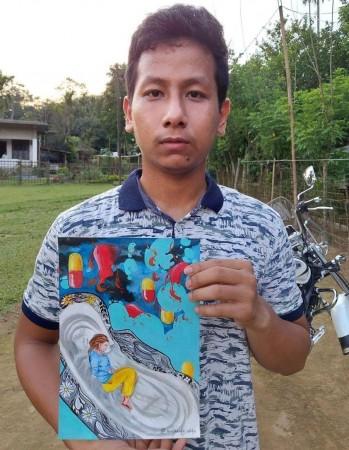There were days when women scribbled the name of their preferred sanitary napkin on a piece of paper before handing it over to their fathers or brothers so they could go pick it from the pharmacy. The pain was much to walk around, venture out. Or to the shopkeeper bhaiya for a quick last-minute purchase, the search for a newspaper or black colour polythene traumatizing further the rhythm of the rising cramps.

For some women, past has redefined itself, taboos slowly sneaking out of the window. In 2017, a research paper by Wateraid and Vatsalyaa led by three women Thérèse Mahon, Anjali Tripathy, and Neelam Singh discussed the relevance and significance of putting 'men' in menstruation.
The paper cited that most men do not know about the normal physiology of menstruation, such as the menstrual cycle and the hygienic measures that should be taken during menstruation, even though they are often responsible for decision-making regarding health facilities and services needed by women and girls.
Pad Man
Much has been spoken and heard about menstrual hygiene and its awareness since then. In 2018, the portrayal of Pad Man Arunachalam Muruganantham by popular Indian actor Akshay Kumar, followed by the award-winning documentary Period - End of Sentence brought much-needed mass attention to the cause that was often mentioned in hushed tones and close-quarters.
As the world observes World Menstrual Hygiene day on May 28, 2021, International Business Times brings to fore the efforts of those men whose work revolves mainly around spreading awareness about menstrual health and hygiene of women and normalizing conversations on the subject.
Karan Babbar, a PhD scholar from IIM Ahmedabad started an initiative in December 2020 to record information about the menstrual health of menstruators during the COVID-19 pandemic lockdown. The study approved by IRB will use responses to understand menstrual health during the emergency pandemic and possibly improve policies around Water, Sanitation, and Hygiene (WASH) facilities.

Nelson Deb, an alumnus of Bangalore University takes pride in being known as a WASH consultant and is an active MHM (Menstrual Hygiene Management) facilitator. Every year as the state of Assam gears up to battle the floods caused by the swelling Brahmaputra, Nelson Deb's The Eco Hub gears up to help women and girls who deserve dignity in disaster and works toward distributing menstrual kits and ensure management of menstrual hygiene at grass-root level. Apart from that, he also actively promotes the importance of menstrual hygiene in rural corners and sustainable menstruation along the Northeast stretch of the country.
Last year, during the Assam floods, Deb's Eco Hub page on Instagram posted a unique video signifying how deep-rooted Indian cultures around menstruation are. The post read - "Periods don't stop for floods, neither does period festival (Tuloni Bia)! Our team was out to inspect the flood conditions in a village nearby and there they were surprised to see a boat with ladies returning from the river after fetching water with which the girl would be given a special bath as a part of the ritual. Even in such troubled times, some cultural practices play a significant role in an adolescent girl's life that needs to be performed (well with much enthusiasm!) We have a mixed reaction' what does it make you feel?"

Mriganka Deba Baruah, an artist from Tinsukia recently made an artwork that pleads women not to use pills to postpone and disturb their cycle. Talking about his work, The Eco Hub page read, "Through his artwork, he wants to convey that women and girls should avoid taking pills to postpone/delay their periods & should use menstrual products during periods. Thank you Mriganka for sharing such a thoughtful painting, our heart is filled with joy when we see young men like you who stand up for period rights!"
Maasik Mahotsav
Nishant Bangera founded Maasika Mahotsav (meaning period festival) way before India got around to watching period films on big screens. Since 2012, Maasik Mahotsava along with Bangera's other initiatives such as Period of Sharing and MUSE aim at spreading awareness about menstruation amongst youth through film screenings, sports, and cultural events. On May 26, 2021, Maasika Mahotsava inaugurated its virtual period summit due to the ongoing pandemic across Asia and Africa.
Around the same time in 2012, Bangalore-based John Paul invented and introduced women the world over with a unique app called 'Maya'. "The initial idea for Maya was to help women track their menstrual cycles in a smarter way. However, a bitter experience of his close friend who suffered from medical complications due to an unplanned pregnancy, made Paul realize that the Maya app could be a lot more profound and life-changing than just a period tracker," highlighted a Deccan Chronicle interview with Paul. Today, almost nine years later, Maya boasts of being a holistic platform to track almost 8 million women's period health.
On the outside, a menstruation hygiene awareness program may just seem like an event where volunteers go around distributing pads to girls or women who cannot access them otherwise. However, it's never just that. The other important aspects of MHM include exposing the menstruators to the choices available at hand, appropriate usage and good hygiene practices, educating them on the best ways to dispose of sanitary waste — it's a cycle in itself.
If you wish to join the discourse on menstrual health management during the pandemic, here's where you can log in:
Organized by Bleed equal and On purpose
Time 3 - 4:30 pm IST on May, 28th
Link: zoom.us/j/97737760210
Organized by Maasik Mahotsav (YouTube)
Time 6 pm
Link: tinyurl.com/36kjyzdk

















